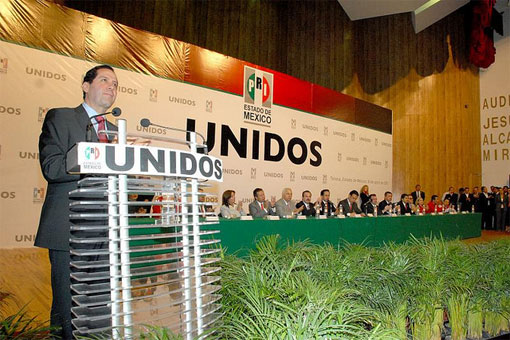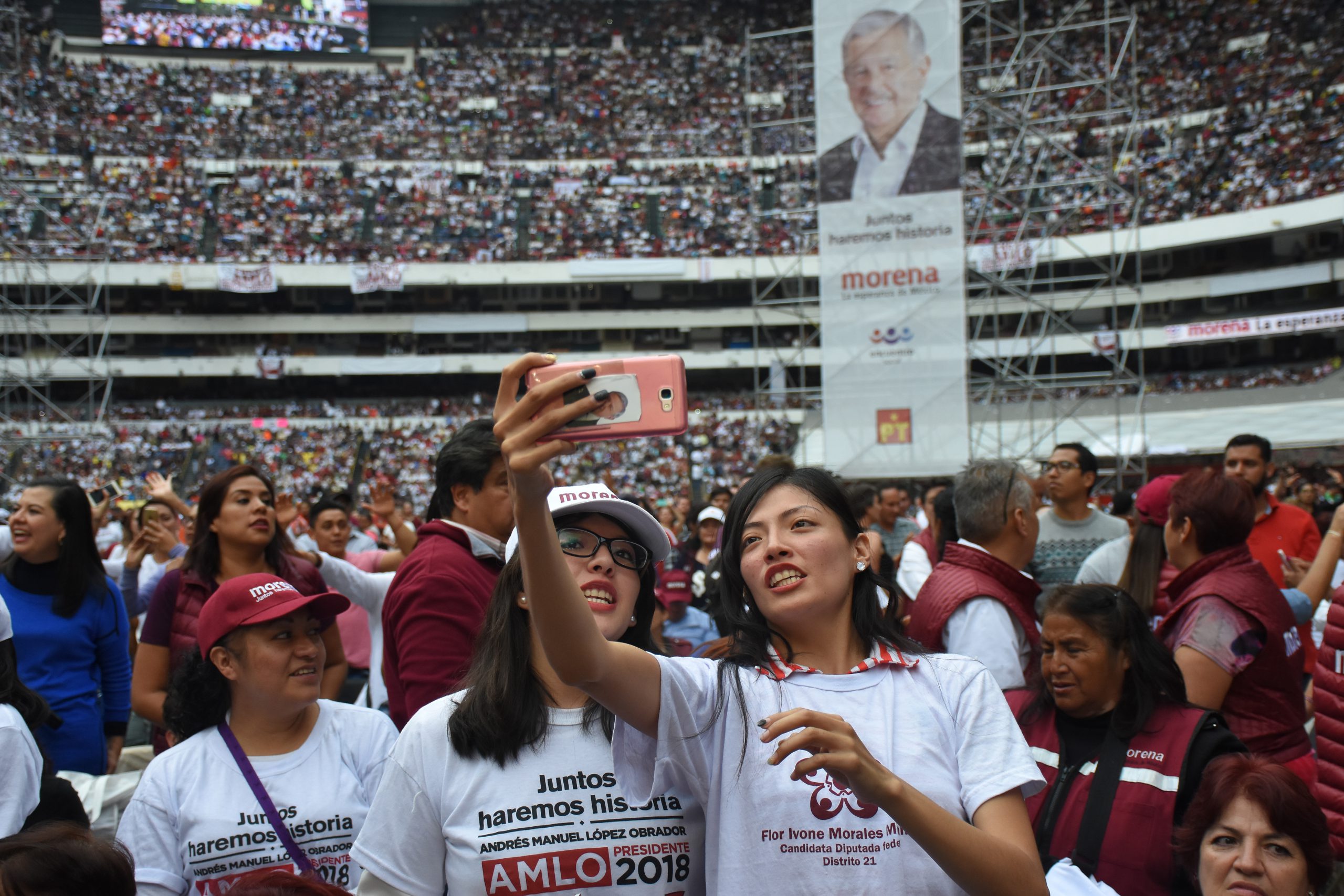In one of the final electoral litmus tests before Mexico’s federal and legislative elections on July 1, 2012, the gubernatorial contests on Sunday in Nayarit, Coahuila and the State of Mexico resulted in a complete sweep by the Partido Revolucionario Institucional (Institutional Revolutionary Party—PRI). This rout sets the stage for a possible PRI return to power next year, replacing the term-limited President Felipe Calderón and his Partido Acción Nacional (National Action Party—PAN).
Much of the post-election commentary deservedly focused on the strength of the PRI, the longtime hegemon that lost power in 2000, and the inability of PAN and the Partido de la Revolución Democrática (Party of the Democratic Revolution—PRD) to mount credible challenges. The PRI’s average margin of victory in the three states exceeded 25 percentage points, leading international observers to predict that the PRI had cemented a return to the presidential palace in 2012.
In Mexico, the reaction was more tinged with worry, both over the specific litany of questionable campaign tactics as well as the broader meaning of the PRI’s likely return to power. An op-ed in the Mexican daily El Universal noted that Sunday’s elections “prove that the Institutional Revolutionary Party is willing to do anything to recover power.”
The State of Mexico (Estado de México, or Edomex), Mexico’s most populous state and Sunday’s most heavily-followed contest, elected Eruviel Ávila as its next governor by an overwhelming 40-point margin over his nearest rival, the PRD’s Alejandro Encinas.
Ávila’s victory also serves as a major triumph for the man he replaces—Enrique Peña Nieto—who has become the clear front-runner for the 2012 presidential elections. Adversaries inside and outside of PRI saw in Edomex a chance to knock Peña Nieto from his seemingly inevitable path to Los Pinos. But with Ávila’s victory, Peña Nieto is as strong as ever. He will now spend the next several months laying the groundwork for his campaign and formulating his positions on Mexico’s most pressing issues.
One of the reasons Ávila’s margin of victory was so large was that the PRD and the PAN—the two largest opposition parties—failed to finalize an alliance of the sort that defeated the PRI in three gubernatorial races last summer. Despite months of speculation, the overwhelming approval of local voters and the willingness on the part of the PAN leadership and much of the PRD to unite behind a single candidate, the PRD’s national council rejected a proposed alliance in April—essentially sealing victory for the PRI.
The alliance’s demise can be primarily attributed to the steadfast opposition of one man: Andrés Manuel López Obrador (AMLO), the PRD president. AMLO’s opposition stems from both a visceral dislike for the center-right PAN—following his narrow defeat in the 2006 election to Calderón—as well as the practical problem that successful alliances empower his rivals within the leftist PRD. With the idea of a PRD-PAN alliance defeated, AMLO helped install his protégé, Encinas, as the candidate. Curiously, however, AMLO was not a very public supporter of Encinas after his campaign kicked off.
As happy as the Edomex result makes Peña Nieto and his team, it should be just as worrying for supporters of the Mexican Left. This election represents the difficult situation in which the PRD finds itself. If it wishes to advance in national politics, the PRD must marginalize AMLO. But this is simply not on the horizon.
López Obrador’s ability to prevail upon the Left to defeat the PAN-PRD alliance and install Encinas as his preferred candidate demonstrates that, while there are certainly poles of intra-party opposition, he remains the strongest force in the party. Opinion polls agree, and Marcelo Ebrard, Mexico City’s perredista mayor, and AMLO have a longstanding agreement to unite behind whomever of the two is stronger heading into the 2012 election—a process where the details still need much hammering out. But while AMLO has pledged to live up to the pact, there is little indication from his actions over the past five years that he would ever stand aside.
The two most likely possibilities for 2012 are a divided left wing. Ebrard would most likely represent the PRD and AMLO the further-left Workers Party (Partido del Trabajo) or the social democratic Convergencia (Convergence) party. AMLO could also run alone. Forget about winning; it is unlikely that either of these scenarios lift the left to even a single-digit deficit against Peña Nieto.
Problems surrounding the electability of AMLO, and by extension the left wing under his stewardship, are unlikely to disappear in the near term. The reaction to his razor-thin loss to Calderón in 2006—the blockade of Paseo de la Reforma, the rejection of Calderón’s government, and, most emblematically, his famous call of “Al diablo con las instituciones” (“To hell with the institutions”)—basically assured his permanent rejection by Mexico’s more moderate mass of voters.
And for a while, it seemed as though AMLO’s star was fading. His candidates have lost the last two battles for the PRD presidency, and he had no official post with which to ensure his relevance. Meanwhile, Ebrard built a reputation as a responsible leader during his tenure as the mayor of Mexico City. His reassuring presence helped the city and the nation overcome the 2009 H1N1 influenza scare (during which Peña Nieto kept a shockingly low profile) without undue panic, and he has earned international acclaim for his progressive environmental policies.
But, ultimately, Ebrard has never managed to unseat AMLO from his position of power among the leftist base, despite AMLO being anathema to much of the electorate. In short, López Obrador may have sacrificed any chance to be president with his heated response to the 2006 defeat, but he still holds more influence over the Left’s direction than anyone else. This presents one telling dilemma—and until it is resolved, the Left won’t put up a serious contender for the Mexican presidency.
If the PRD and the PAN can take one lesson from the PRI’s trifecta of gubernatorial victories it is that the road to Los Pinos in 2012 will be even more difficult than even the skeptics previously believed.






